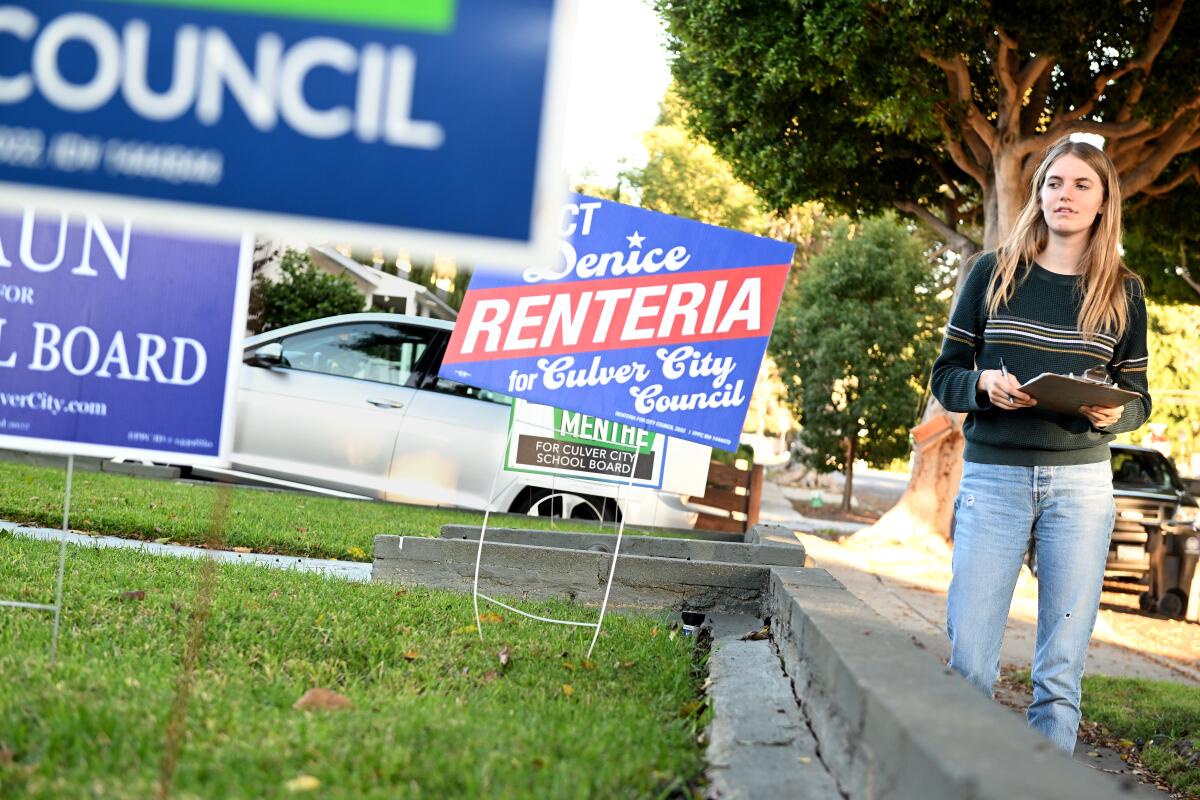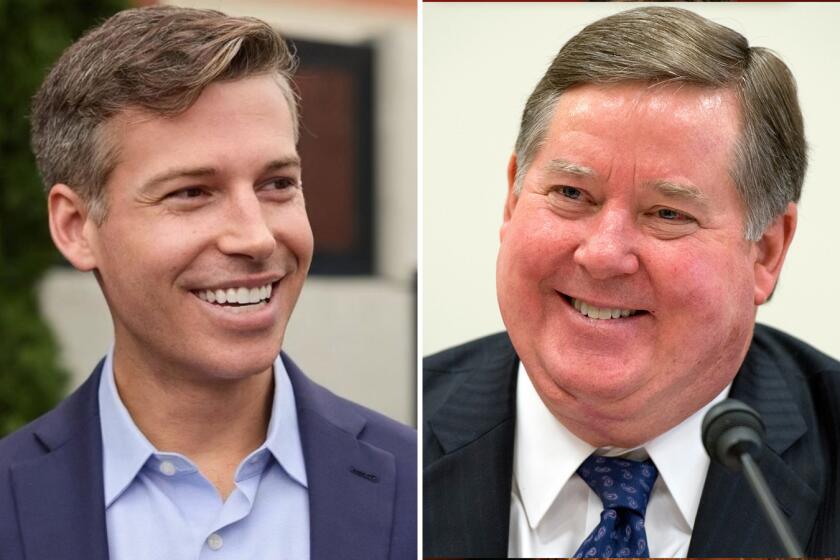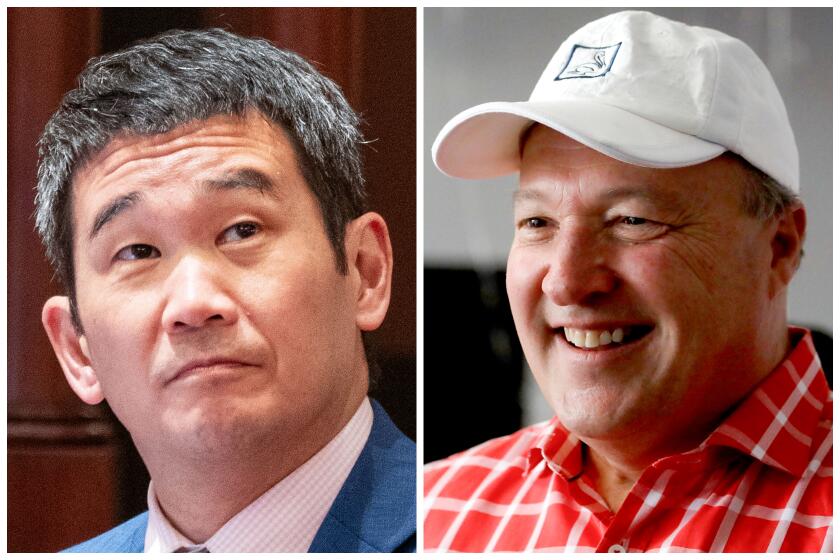Measure to lower voting age to 16 is on the ropes in Culver City in early returns

A youth-driven push for a ballot measure to lower the voting age will likely fall short in Culver City after months of advocacy on both sides.
The ballot initiative, known as Measure VY, would allow Culver City residents as young as 16 to vote in city and school board elections. No other municipality in the country put such a proposition before voters this election cycle.
As of Thursday evening, the latest numbers from the Los Angeles County Registrar-Recorder/County Clerk show 4,918 votes against the measure compared with 4,264 votes for it, a ratio of about 54% to 46%.
Because the county has yet to finish tabulating ballots, Measure VY is not necessarily dead.
But Ada Meighan-Thiel, 17, said she recognizes it’s not looking good for the ballot measure. She and a dedicated grassroots crew of her fellow Culver City High School students spent months advocating for it. But she hasn’t given up hope.
“We’re waiting for some more votes. … Whether those votes will be a bit more progressive than the ones who’ve already been counted is hard to say,” she said Wednesday. “Hopefully the margin will be a bit slimmer by the time we look next.”
City Clerk Jeremy Bocchino said Thursday that because the county coordinates all ballot counting, Culver City does not have any special insight into outstanding ballots.
“There’s no telling how many more ballots will be coming in,” Bocchino said, noting that vote-by-mail ballots postmarked by election day are counted if they are received with seven days. “Your guess is as good as mine as far as how many ballots are still out there and what the turnout may be. We have more than 28,000 registered to vote and we don’t know how many actually turned out to vote.”
Even if Measure VY ultimately fails, Meighan-Thiel said the excitement and awareness young Culver City residents built around lowering the voting age — a movement often referred to as “Vote 16” — made the effort a success.
“We still started a conversation about teen enfranchisement, and I think that’s really valuable regardless of outcome,” she said. “We recognize that political participation isn’t just about voting. It’s about being active in your community, and we did just that on the campaign trail.”
Andrew Wilkes is chief policy and advocacy officer for Generation Citizen, a nonpartisan national civics education organization that provided support to Measure VY proponents. He echoed Meighan-Thiel’s sentiments.
“If it goes the way the trend line holds, reaching 46% is a landmark accomplishment. I think it also represents the need and the desire for young people to participate in our democracy,” he said.
“The movement continues to grow in interest and strength. … This lays the groundwork for the baton to be passed to rising high school students.”
Across the U.S., a small number of communities have put ballot measures to lower the voting age before voters over the last decade. Six municipalities in Maryland now allow people as young as 16 to vote in some elections.
In California, Berkeley and Oakland approved the practice in 2016 and 2020, respectively, but Alameda County has yet to implement the change.
Vote 16 proponents argue that if 16- and 17-year-olds can work and pay taxes, they should have a say in politics. They point to research showing that 16-year-olds have adult levels of cognitive capacity.
Opponents worry that people that age are too naive and impressionable to make informed political decisions. They also fret that allowing younger teens — who often lean left — to vote could disproportionately benefit more progressive candidates and causes.
But Meighan-Thiel said it’s really about getting young people involved in the political process, empowering them to make their voices heard, and developing lifelong voting habits at a young age.
“I know that change is really hard for a lot of people and that’s fair; change is a scary thing,” she said. “But it’s really just never too early to get involved, and this is just one moment in a bigger movement for teen enfranchisement.”
More to Read
Sign up for Essential California
The most important California stories and recommendations in your inbox every morning.
You may occasionally receive promotional content from the Los Angeles Times.











